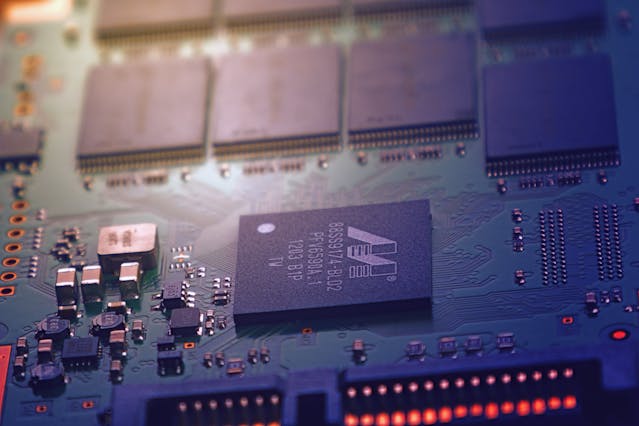Top 5 Industries That Still Use Fax Technology
Fax machines are valuable office communication tools enabling fast and easy document exchange. But because of technological advances, not all companies need these physical devices anymore to send and receive important papers.
Online fax services or e-fax rely on the Internet for transmissions instead of the telephone or dial-up connection used by their traditional counterparts. Digital technologies often tap the cloud to provide secure and accessible data. As such, they can be used even when no machine is in sight, perfect for people on the go.
Because sending and receiving critical documents in a timely and secure manner is paramount to all organizations, fax technology is here to stay. Here are the top industries with the heaviest usage:
Table of Contents
1. Legal Industry
The legal industry relies on documents for multiple purposes, including sending and receiving court notices, communicating with clients, and exchanging documents among law firms. Faxed copies are legal and can be used as evidence before the courts because transmissions can be audited and traced.
While document transfers and exchanges are crucial in the legal industry, so are client protection and confidentiality. All interactions between a client and their legal counsel are privileged and protected. Hence, the legal sector must preserve this foundational rule at all costs.
Many law firms use fax machines to transmit and receive documents securely. Similarly, most lawyers use eFax technology to access them inside or outside the office. Having both technologies or the electronic version alone is enough for law firms that want to save on operational costs without sacrificing document protection and integrity.
2. Healthcare Sector
The Health Insurance Portability and Accountability Act (HIPAA) has set stringent guidelines that protect patient data. Healthcare institutions, and often third parties handling such information, must adhere to such regulations for seamless operations and to lower the risks of lawsuits arising from improper implementation. That said, health agencies have legal and ethical responsibilities to protect sensitive individual information.
At the same time, healthcare practitioners and insurance companies need to access documents to provide efficient services. Fax technology can help them achieve compliance by facilitating secure document transmissions.
Dial-up transmissions are thought to be immune to hacking but still pose privacy threats that worry healthcare agencies. In Ontario, Canada, where about 152 million documents are transmitted annually, the government plans to scrap fax machines in five years.
On the one hand, digital fax service providers have built-in features that ensure robust protection. Besides tapping cloud technologies, many inherent encryption services render data useless once cybercriminals intercept them. Health-centric fax companies also offer seamless integration with in-house software solutions, allowing faster and more secure data exchanges.
3. Financial Services Industry
The finance sector comprises several companies, including banks, lenders, insurance, and investment companies, to name a few. Like the two other industries mentioned, this sector relies heavily on paper for its operational workflows, including loan processing and banking. As such, financial companies likewise have the ethical and legal responsibilities to protect their client’s financial data.
Faxing is commonplace among these institutions for signing forms and processing numerous transactions. As mentioned, fax-transmitted documents are recognized as valid as paper form submissions. While banks and other firms may still rely on fax machines, most have switched to digital technologies that offer heightened security, especially when electronic signatures are involved.
Electronic fax technologies have built-in security features that eliminate unauthorized data access by tracking users and requiring multiple authentication processes.
4. Real Estate Industry
Anyone who’s tried buying or selling a home can attest that voluminous records must be submitted, signed, and exchanged. As such, it’s unsurprising that the real estate sector is among the list of industries that benefit most from fax technologies.
Real estate agents must send or receive client documents, including financial records, loan forms, tax papers, contracts, and reports. It’s costly and time-consuming to send them back and forth, ask homeowners to fill them out, request signatures and approvals, and forward them to the proper institutions for proper action.
With fax technologies, the real estate staff can securely transmit these documents faster and perform their tasks more efficiently. Their clients can likewise benefit from these transfers, as they don’t need to visit the office multiple times to examine, sign, and submit such documents.
5. Manufacturing Sector
The manufacturing sector has one of the most complex workflows in the business sector. Several departments and tasks are needed to enable product creation, particularly material sourcing and, in some cases, shipping.
As such, procurement entails constant communication with suppliers and logistic companies, most often requiring document transmissions. For instance, firms may need to forward shipping forms, order details, credit memos, receipts, and invoices to third parties. Traditional fax machines can do the job. However, companies should consider using digital technology to avoid problems like human error, document misplacement, and receiving unclear copies.
Besides eliminating such issues, digital fax technologies offer cost-effective and secure solutions to document transmissions that help reduce business costs and increase revenues.
Concluding Thoughts
Traditional fax infrastructure has existed for decades, yet many businesses from the above sectors are switching to online faxing for increased protection and convenience. With the current technologies, firms don’t need access to a fax machine to receive and send documents. As such, executives and team members can perform their tasks more efficiently without compromising security.









